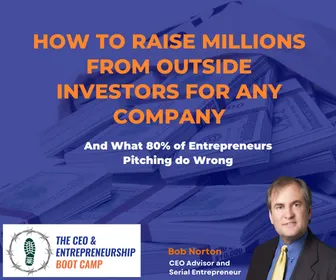Why Do Founders Often Fail as CEOs?
“Management is doing things right; leadership is doing the right things.” – Peter Drucker
In the dynamic world of business, the role of a CEO is crucial for the success and growth of a company. However, it is not uncommon to witness founders, who possess the vision and drive to start a business, struggle when transitioning into the CEO role. This phenomenon raises the question: why do founders often fail as CEOs?
One reason is that the skill set required for founding a company differs from the skill set required for leading it. Founders typically excel in entrepreneurial traits such as innovation, risk-taking, and a strong sense of purpose. They possess the ability to identify opportunities, mobilize resources, and create a vision for the future. However, as the company grows, the demands of the CEO role expand to encompass a broader set of responsibilities.
As the organization matures, CEOs need to focus on operational efficiency, strategic planning, talent management, and stakeholder engagement. They must navigate complex decision-making processes, manage conflicts, and maintain a delicate balance between short-term goals and long-term vision. These challenges require a different skill set than what founders may initially possess, leading to potential difficulties in the CEO role.
Additionally, founders often struggle to let go of their previous roles and delegate responsibilities. They may have a strong attachment to the company they built from scratch, resulting in a reluctance to empower others and share decision-making authority. This micromanagement tendency can hinder the growth and development of the organization, as well as create a bottleneck for decision-making. Founders must learn to trust their team and empower them to contribute their expertise and skills.
Another factor contributing to the challenges faced by founders as CEOs is the need for adaptability and flexibility. The business landscape is constantly evolving, and CEOs must be adept at navigating change and uncertainty. Founders who are deeply invested in their initial vision may find it difficult to adapt to new market trends, emerging technologies, and shifting customer preferences. This lack of adaptability can hinder the company’s ability to innovate and stay ahead of the competition.
“The most dangerous kind of waste is the waste we do not recognize.” – Shigeo Shingo

Free Webinar Replay
How to Raise Millions from Outside Investors for any Company – Learn the 30 other sources of capital beyond angel and VC and how to prepare a company and get it into the top few percent investors see.
To address these challenges, founders must actively work on developing their leadership skills and self-awareness. Seeking mentorship from experienced CEOs, attending executive education programs, and reading books on leadership can provide valuable insights and guidance. Furthermore, founders should build a strong leadership team, composed of individuals with complementary skills and expertise, to support the company’s growth and success.
In some cases, it may be beneficial for founders to step aside and hire a professional CEO to lead the company. This decision requires humility and an understanding that what is best for the organization may not align with personal aspirations. By recognizing their limitations and making strategic decisions for the long-term success of the company, founders can create an environment conducive to growth and sustainable leadership.
In conclusion, the transition from founder to CEO can be a challenging journey. Founders must recognize that the skills and mindset that enabled them to start the company may need to evolve to effectively lead it in the long term. By developing their leadership skills, fostering a culture of delegation and empowerment, and embracing adaptability, founders can increase their chances of success in the CEO role. Ultimately, the success of a company rests not solely on the founder’s vision, but on their ability to lead and manage a growing organization.
“The function of leadership is to produce more leaders, not more followers.” – Ralph Nader
Bob Norton is a long-time Serial Entrepreneur, CEO and investor who founded six companies with four exits that returned over $1 billion to investors for a 25X ROI. Two others are still in development. He has trained, consulted and advised thousands of Entrepreneurs, CEOs and boards since 2002. Mr. Norton works with companies to 2X to 10X growth rates and valuation using AirTight Management™, the world’s most comprehensive Leadership Operating System. He also helps companies raise capital to fund growth. He is also the Founder of The CEO Boot Camp™ and Entrepreneurship University™ for early-stage companies that have not reached product-market fit and $1M ARR.
What can we help you with today? Scaling, training, consulting, coaching?
Call (619) SCALE06 or (619) 722-5306 9am-6pm CT
Or Schedule a free 30-minute strategy session by clicking here.


